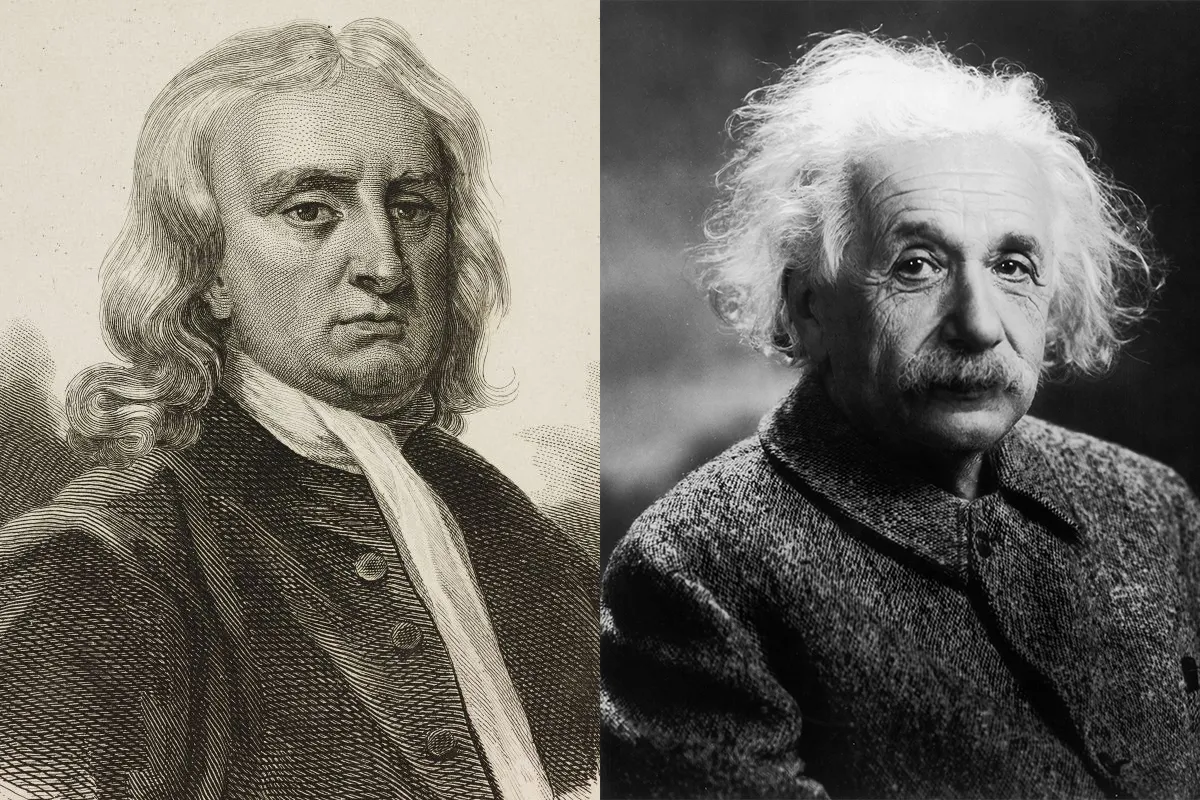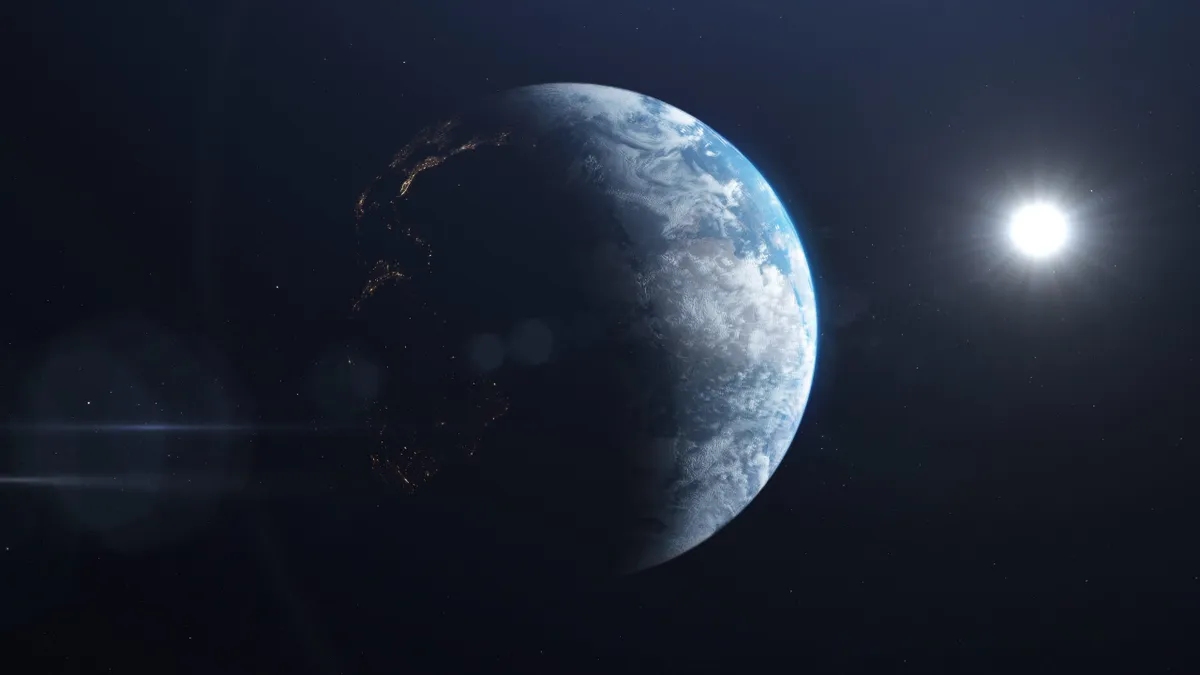Gravity is one of the trickiest concepts to understand. In our everyday lives it appears relatively weak, yet on cosmological scales it is the strongest, most influential force in the Universe.
Gravity was one of the first forces to be recognised and is at the heart of the first laws of motion to be defined in physics.
Yet despite this, gravity remains one of the least understood forces of all.

Yes, gravity may cause apples to fall from trees, our feet to stick to the pavement and the International Space Station to orbit our planet, but if we really analyse it, no such force actually exists.
And while some may think there's gravity on Earth but not in space, gravity is in fact everywhere.
Two of the biggest figures who have contributed to our understanding of gravity are Isaac Newton and Albert Einstein, and you may have heard how many aspects of their theories don't match.
You may also have heard how Newtonian gravity's inability to explain the orbit of Mercury led to the search for a theoretical planet Vulcan, for example.
What was missing from Newton's theories of gravity, and what are the major differences between his and Einstein's?
Newton vs Einstein: the theory of gravity

Einstein’s theory of gravity, the general theory of relativity, differs in many ways from Newton’s earlier theory of gravity.
One of the most important is that Einstein’s theory incorporates the cosmic speed limit: the speed of light.
Newton had assumed that gravity is felt everywhere in the Universe instantaneously, in other words that it travels at infinite speed.
Newton would therefore have predicted that, if the Sun vanished at this moment, the Earth would notice the lack of gravitational pull immediately and fly off out of the Solar System.
Einstein recognised that since nothing, not even gravity, can travel faster than the speed of light, the Earth would not notice the absence of gravity for 8.5 minutes, the time it takes gravity to travel (at 300,000km/s or 6.7 million mph) from the Sun to the Earth.

Another difference between Newton and Einstein is that Einstein’s theory recognises that the source of gravity is not mass, as Newton believed, but energy, one form of which is mass.
This means that all forms of energy have gravity: sound energy, heat energy and so on.
Crucially, gravity itself is a form of energy, so gravity creates more gravity.
What this means is that close to the Sun where solar gravity is at its most powerful, gravity is slightly stronger than Newton predicted.
In Newtonian gravity, a planet can only follow an elliptical orbit, but Mercury’s orbit continually shifts so that it traces out a pattern like a rosette.
The prediction of this ‘precession’ of the perihelion of Mercury was one of the key triumphs of Einstein’s theory of gravity.
This article originally appeared in the December 2006 issue of BBC Sky at Night Magazine.
